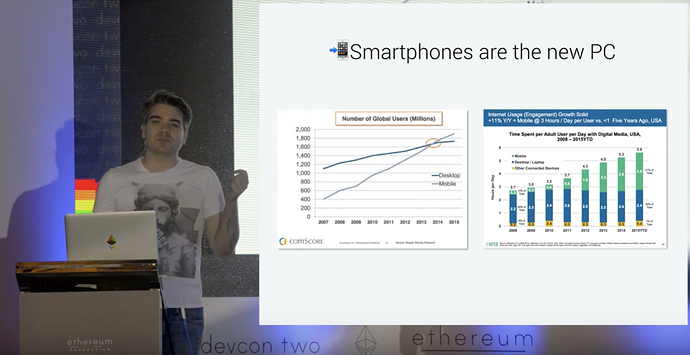During the Basel Secure messaging met up we spent some time discussing principles at Status - the things that we value the most, and how these will feed into product decisions.
We started with a “wall of shame” - a list of items people have concerns with, followed by a list of possible product values reflecting why these items were concerning. We then clustered these sets of values into key areas. This resulted in nine key areas / principles.
These principles are very much a work in progress and they overlap with some existing work. Here is the outcome of this.
Principles
1. Liberty
We believe in the right of individuals to have autonomy and responsibility over his or her own life. We aim to maximize social, political and economic freedoms. Status is an agnostic platform.
2. Censorship resistance
We aim to avoid the suppression of information. No content is under surveillance. One of the design goals of Ethereum is to be censorship resistant, and we should provide the same guarantees across Status.
3. Security
We don’t compromise on security when building features. We will use state of the art and research new security methods and technologies to make strong security guarantees.
4. Privacy
The power to selectively reveal oneself to the world. Protecting privacy in communication and transactions, as well as the right to total anonymity.
5. Transparency
We strive for complete openness and symmetry of information, and have no border between our core contributors and our community. We will be frank about our faults, especially when making short-term tradeoffs in service of our long-term goals.
6. Free culture
The software we create is a public good. It will be made available via a free and open source license, for anyone to share, modify and benefit from.
7. Decentralization
We will minimize centralization across both the software and the organization. In other words: Maximize the number of physical computers composing the network, and maximize the number of individuals who have control over the system(s) we are building.
8. Inclusivity
We believe in fair and widespread access to our software, with an emphasis on ease of use. Also extends to social inclusivity, inviting participation in the organization, and investing in educational efforts.
9. Continuance
We aim to create software that will continue to exist and improve without the stewardship of a single entity or any current team members.
Trade-offs, considerations and example applications
Liberty
Considerations:
- Distribution in markets like China - is potentially releasing a subset of Status a net benefit in terms of liberty, provided we are transparent about it?
Example application:
- We will not compromise freedom of speech or right to assembly by even having the option to selectively prevent this.
Censorship resistance
- Tradeoffs: Reliance on infura.io, etherscan.io, running a cluster, etc.
Security
- Tradeoffs: Lack of PFS, cluster size, seed phrase storage, bandwidth usage, password and seed phrase UX, distribution channels (App Store, Play Store), DevP2P encryption broken.
Privacy
- Tradeoffs: Ethereum / unshielded transactions, same key for chat/Dapps/wallet, users can’t remove contacts, transactions are public, no plausible deniability, MixPanel.
Transparency
-
Tradeoffs: Marketing messaging is not open about our faults, we don’t document the tradeoffs that we’re making.
-
Considerations: Finances aren’t public, but complete tranparency may violate laws in some jurisdictions
Free culture
- Tradeoffs: Slack/Google Docs, finances, cluster repositories are private.
Decentralization
-
Tradeoffs: cluster, mailserver, infura.io.
-
Considerations: We’re choosing efficiency.
Inclusivity
-
Tradeoffs: Slack/Google Docs, device minimum requirements, barriers to entry in contributing.
-
Considerations: We’re focused on mass adoption but making concessions in security and elsewhere.
Continuance
-
Tradeoffs: cluster, core contributors dependent on fiat payroll, lack of transparency from using Slack, lack of incentivization to run nodes.
-
Considerations: We have no pressing need to be more resourceful because we have the means to sustain ourselves for a long time.
Raw links
Voting doc: https://docs.google.com/spreadsheets/d/1RaI3XvcCD6QsnKtAGIV1Btch8gcXEotdNvY4FOR3Fto/edit#gid=0
Video: TBD
Principles doc: My first HackMD note (playground) - HackMD
Questions
- Are there any principles that seem unclear, nonsensical or not meaningful to you?
- Are there any principles you disagree with?
- Are there any principles you feel are missing?
- What are some examples of trade-offs, considerations, and practical applications of these principles?
